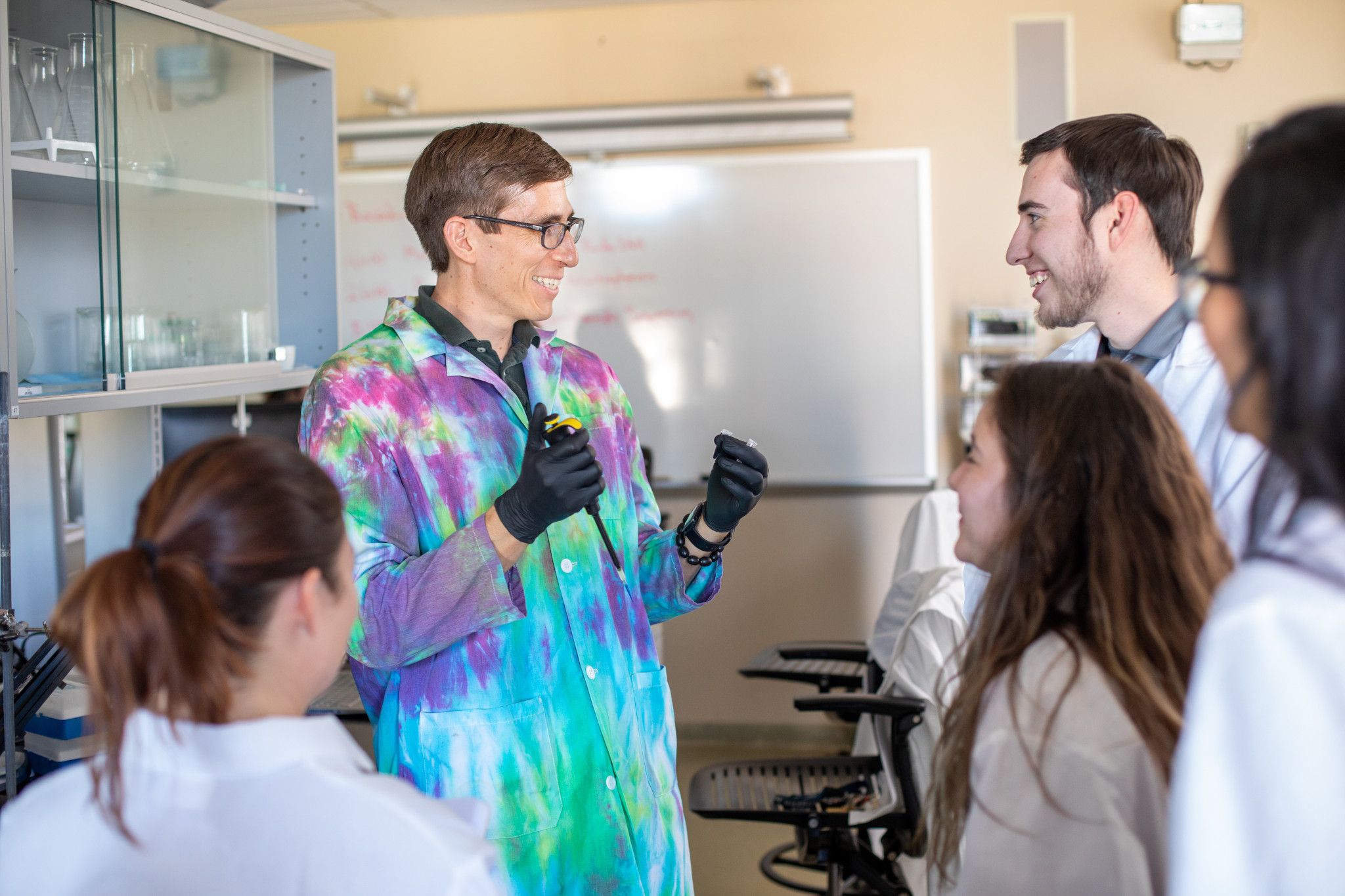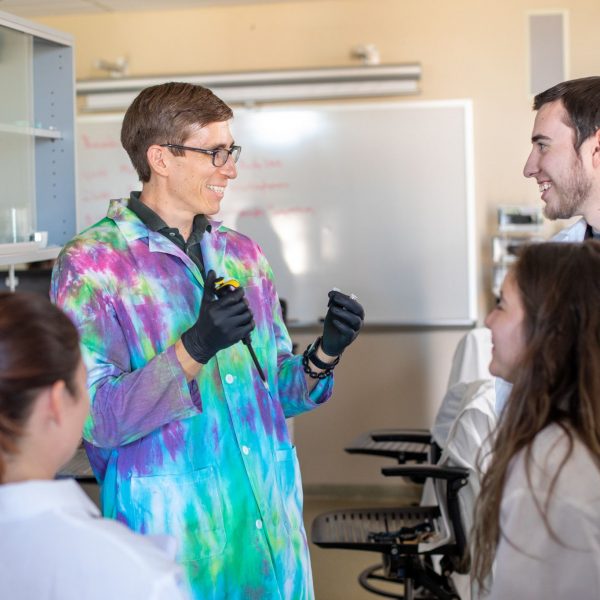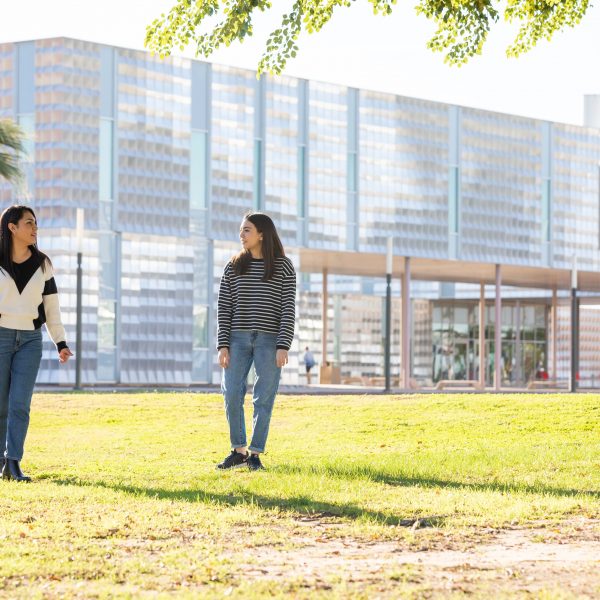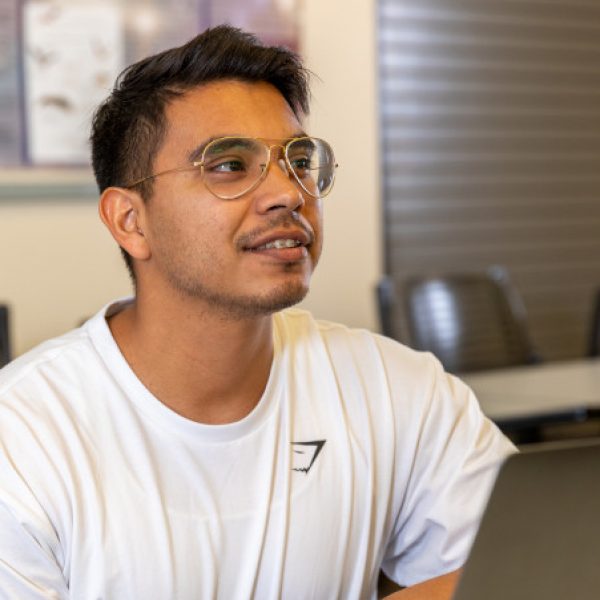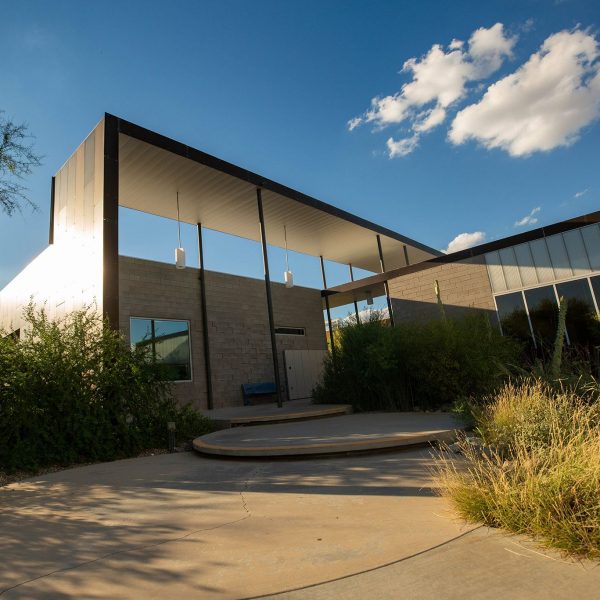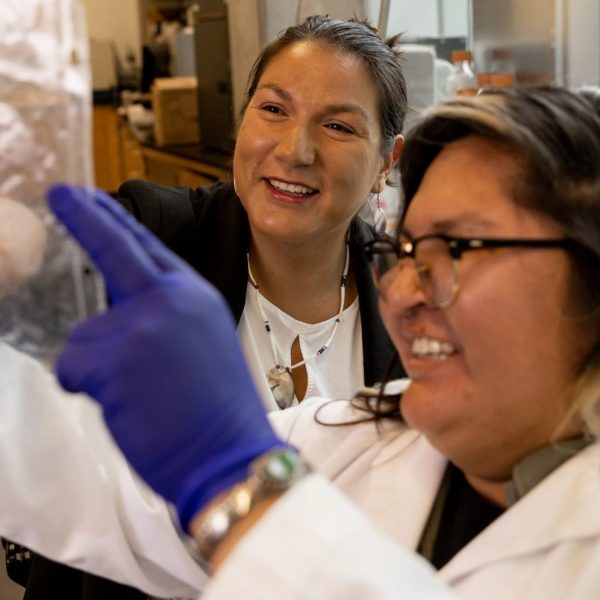Clinical Professor Francisco Villa is preparing NAU–Yuma students to enter the local agricultural workforce through a USDA grant.
Yuma’s agricultural industry is one of the largest in Arizona, producing 91 percent of the leafy greens consumed in all of North America over the winter. Under the surface of this success are underrepresented minority students in the Yuma area who can’t afford to pursue a scientific degree and thus a career in their community’s main industry.
The SANDY LOAM program has the potential to generate a critical mass of expertise from students in historically underrepresented and underserved groups as they enter the agricultural workforce.
Clinical Professor of Biological and Natural Resource Sciences Francisco Villa is working to address that disparity and change the future for these students. He received a $243,559 grant from the US Department of Agriculture (USDA) that will help students pursue agricultural-related STEM careers. The two-year program, Science in Agriculture by Navigating to Degrees in Yuma: Learning, Opportunities, Assistance, and Mentorship (SANDY LOAM), will support students completing a Bachelor of Science in Biological and Natural Resource Sciences with $6,500 per year in tuition scholarships.
“The SANDY LOAM program has the potential to generate a critical mass of expertise from students in historically underrepresented and underserved groups as they enter the agricultural workforce,” says Villa. “The Yuma community has high levels of poverty and unemployment and a low level of education, and there are significant socioeconomic barriers here preventing students from earning degrees. We applied for this grant because it would enable us to connect about 10 students—five each year—with scholarships.”
Thanks to President Cruz Rivera’s Access2Excellence program, Villa may even be able to expand SANDY LOAM’s reach. “Most of our students will qualify for that program, which guarantees free tuition for undergraduate Arizona residents whose annual family income is $65,000 or lower,” says Villa. “That’s going to free up additional monies to help more students succeed.”
Variety of agricultural career options
Over the past several years, Villa has been building NAU–Yuma’s undergraduate degree program in Biological and Natural Resource Sciences. The program is a partnership with Yuma’s local community college, Arizona Western College (AWC). About 90 percent of students enrolling in the degree program are direct transfers from AWC.
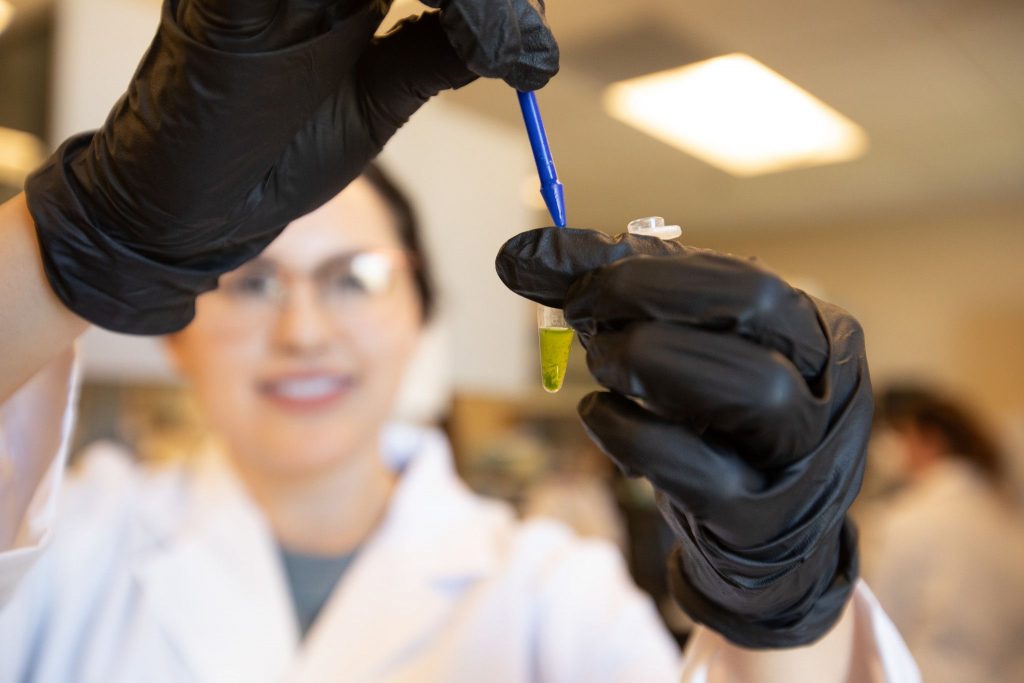
SANDY LOAM will primarily recruit students in this degree program. Graduates will find many different career options in the agricultural industry, which employs technical and scientific professionals in a variety of areas including water analysis, soil science, veterinary medicine, food safety, microbial testing, and lab research.
Beyond the scholarship: internships, mentoring, and professional development
In addition to financial assistance, students in the program will receive mentoring from science faculty and industry partners, engage in outreach activities with the community, and travel to a USDA National Institute of Food and Agriculture conference.
“Another barrier for students has been finding relevant employment in Yuma once they graduate. But they need help finding that employment because they typically don’t have any experience working in agriculture,” Villa explains. “We’ve found that providing more professional development opportunities that give our graduates that experience helps them enter the workforce and begin their careers.”
As we fund these internships with partners in the Yuma region, we hope they will see that bringing on a student is really worth the investment—and offer their own paid internships.
The program will provide students with paid internships at agencies such as Yuma County Health Services’ Environmental Health Department, the US Geological Survey, and the Bureau of Reclamation; or businesses such as the Gowan Company. “Students completing these internships will gain skills and hands-on experience towards attaining future employment with regional partners and build on the local industry philosophy of ‘growing our own’ human capital for the food and agriculture sciences,” Villa says.
Students will also participate in community outreach activities by developing workshops on testing soil for optimal crop growth as part of an annual AWC event for area fifth-graders. Some will also be invited to travel to USDA scientific meetings.
Senior Isabel Lucio, who will graduate in May 2023, is specializing in agricultural research and the environment. She recently served as an intern at Yuma-based Research Designed for Agriculture (RD4AG). “I really love research,” Lucio says, “and doing anything that helps improve the way we grow our crops.”
Lucio urges students who may be interested to apply for the program. “Do not be afraid to try new things because you never know if that will become your new passion.”
A seed for growth in paid internship opportunities
Another goal for Villa is to use this opportunity to build better relationships by providing scientific support to partners in Yuma’s agricultural industry.
“Paid internships in this industry are very rare, but we’re hoping this program will work as seed money,” Villa says. “As we fund these internships with partners in the Yuma region, we hope they will see that bringing on a student is really worth the investment—and offer their own paid internships. A lot of our students who do internships end up working for those employers, and they have really good experiences.”
Eventually, Villa also hopes to engage industry partners as mentors. “What we really want to do is to connect with these industry partners and encourage them to be more involved in our program, maybe talking to our classes and or serving as resources that our students can reach out to with professional questions. And we’re in the process of forming an advisory board made up of regional partners.”
Apply to SANDY LOAM
Villa is actively recruiting NAU–Yuma students for the SANDY LOAM program.
“We’re looking for more students to participate and strongly encourage students interested in an agricultural-related career to apply. Students from minority groups underrepresented in science are especially encouraged to apply, but the program is open to all, independent of race and ethnicity.”
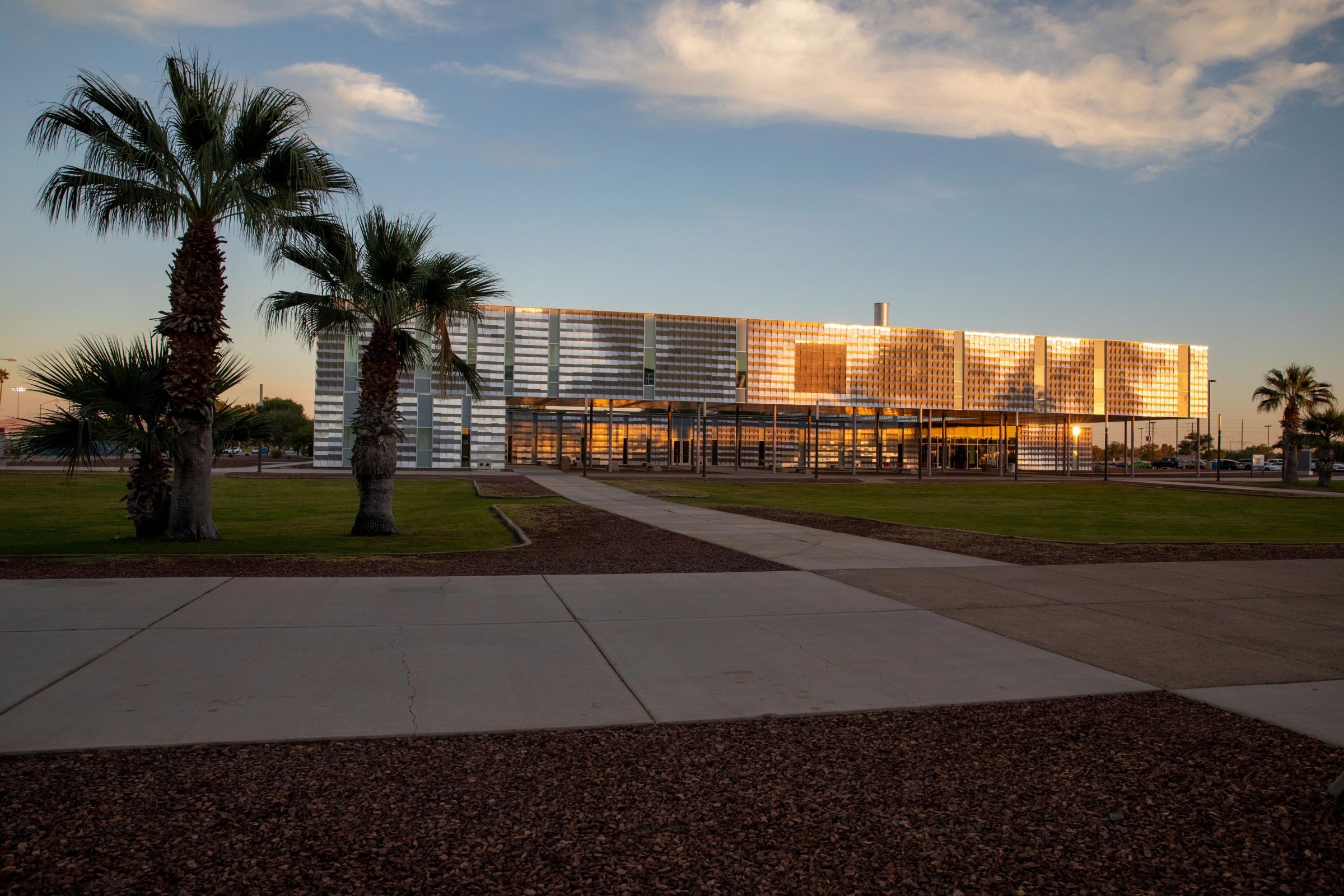
Students will be selected for scholarships through a competitive application process. Program highlights include:
- two years of cohort classes and robust support from our learning community
- hands-on work experience through internships, research activities, and professional meetings
- focused mentoring with science faculty
Eligible students will have a declared major in Biological and Natural Resource Sciences at NAU–Yuma, demonstrate academic talent (minimum college GPA of 2.5) and financial need, and be US citizens or permanent residents. Students will have successfully completed very specific courses as described on the application form.
Visit SANDY LOAM to learn more and download the application form and instructions. For additional information, contact Dr. Villa at Francisco.Villa@nau.edu or 928-317-7080.

